Affiliate links on Android Authority may earn us a commission. Learn more.
Staring at a small screen all day? You’ll probably enjoy this laptop
October 30, 2022
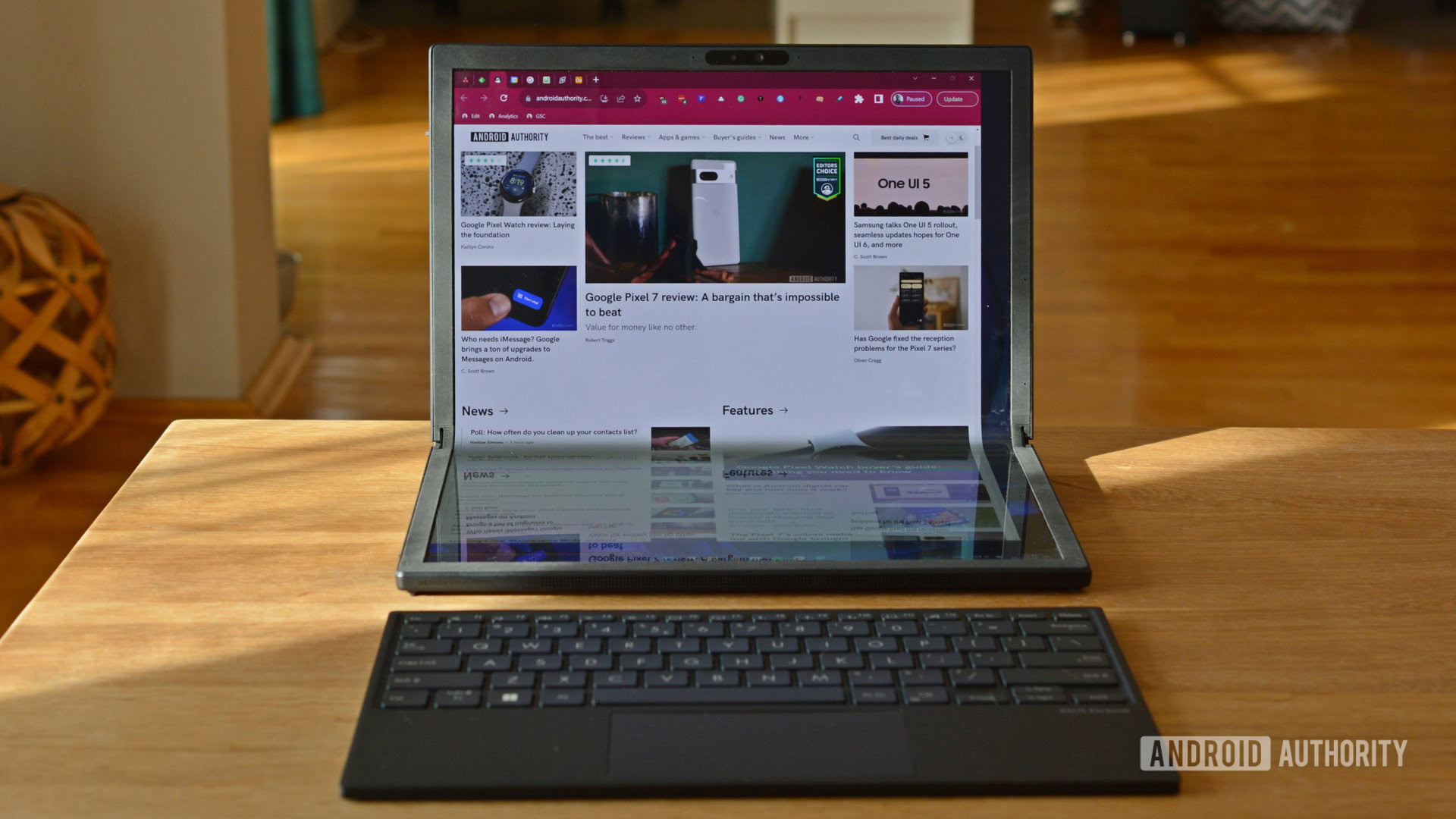
I can accurately be described as a desk monkey. I spend most of my workday sitting behind a monitor (or two), and I know this isn’t news to anyone, but it can get old. As such, I’m always looking for ways to, um, spice up my desk life. In the past, that meant buying a bigger, wider monitor (verdict: mixed) or trying out a standing desk converter (verdict: recommended).
Over the last weeks, I tried something new: a transforming, foldable laptop. The verdict? The ASUS Zenbook 17 Fold has many flaws, but it’s still one of the coolest ways to break from the tyranny of the desk. And you don’t have to give up much productivity. Let me explain.
Wait, how does this thing work again?
Like a Galaxy Z Flip 4 phone, the Zenbook 17 Fold’s screen folds down the middle. The tech has been around for years, but that doesn’t make it any less impressive, especially when it’s applied to a big-ass display (to use the technical term). The screen is coupled with a thin Bluetooth keyboard that attaches magnetically. Together, they make up the “laptop” — you could just as easily call it a “tablet” or “All-In-One PC,” though.
The Zenbook 17 Fold is a proper transformer. ASUS lists six configurations you can use it in, but the main ones are as a 12.5-inch laptop (screen folded halfway, keyboard covering the bottom part) and as a 17-inch All-In-One (screen unfolded, kickstand out, keyboard placed in front of it). The other modes are interesting but less practical — you can use it as a giant tablet or fold it halfway and let websites and apps flow down the bent screen like some maniac.
This is a legitimately exciting device, the likes of which we haven’t seen in the PC space in years.
Okay, so what’s so cool about it?
First, I don’t think I’m stretching the definition of “cool” here. This is a legitimately exciting device, the likes of which we haven’t seen in the PC space in years. The Zenbook 17 Fold is only the second foldable laptop on the market after the Lenovo X1 Fold. ASUS adopted the same concept as Lenovo but made it bigger. As such, the Zenbook 17 Fold is the first 17-inch foldable laptop you can buy. The expansive display is one of the best things about it, as it provides plenty of screen space regardless of how you use it. That’s not something you could say about Lenovo’s claustrophobic first-gen X1 Fold, though the follow-up version increased screen size to 16.3 inches.
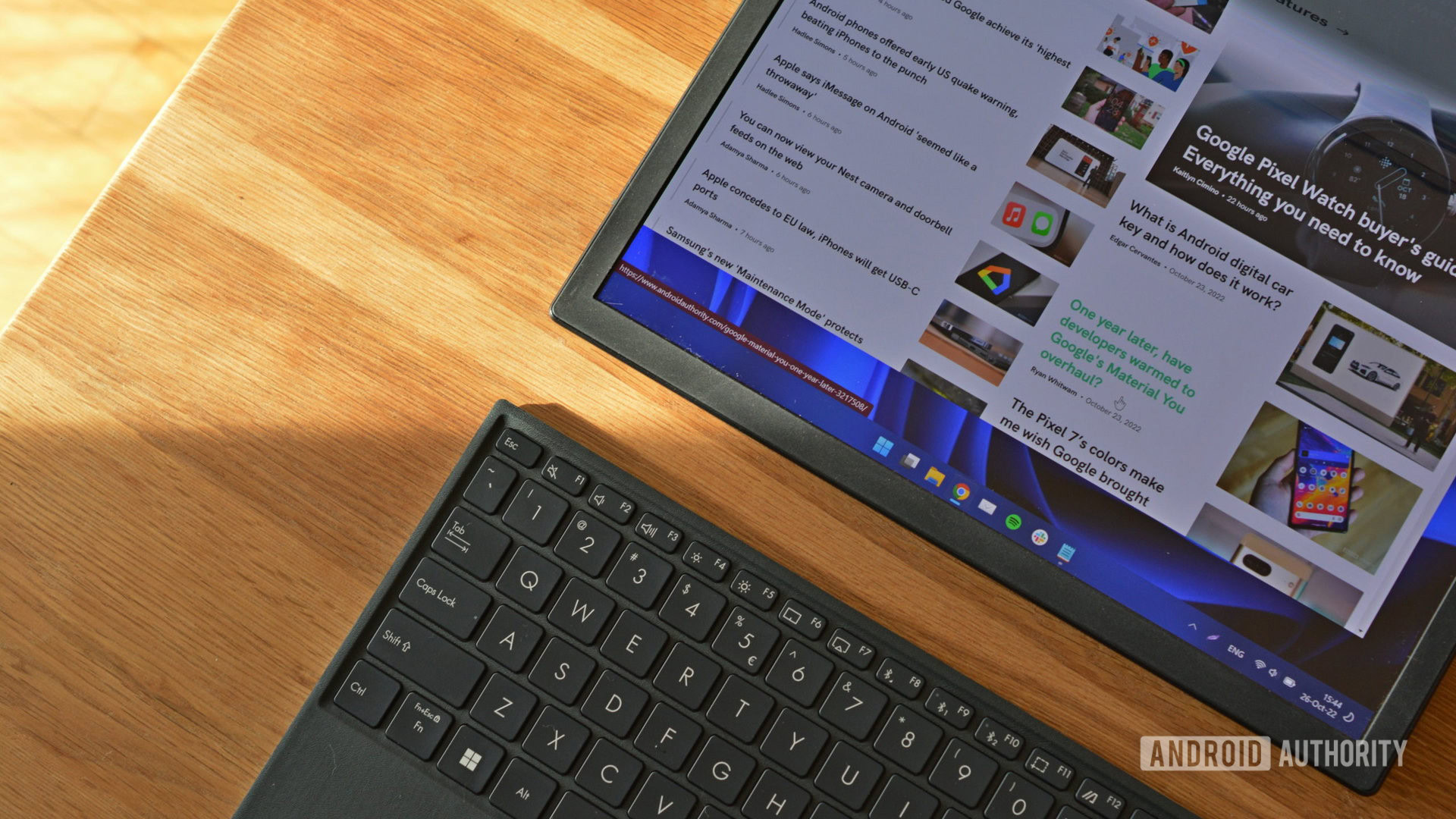
The best thing about the Zenbook 17 Fold is how easily and seamlessly it transforms.
In laptop mode, you get pretty much exactly what you’d expect from a machine of this screen size. It’s chunky, but it otherwise looks and works very similar to, say, the little Chromebook I’ve been using as my daily driver. This mode is perfect on the go or whenever you lack a steady surface to prop the screen on.
When you unfold the screen and prop it on the hidden kickstand, magic happens.
When you unfold the screen and prop it on the hidden kickstand, magic happens. From a compact 12.5 inches, your world of pixels expands to 17 inches of glorious Full HD OLED screen. That’s enough screen space to give some older standalone monitors a run for their money. And because the screen is 4:3, you can fit more content than on conventional 17-inch laptop screens, most of which are 16:9. Browsing the web requires fewer scrolls, working with complex spreadsheets is less daunting, and overall it’s just easier to see the big picture.
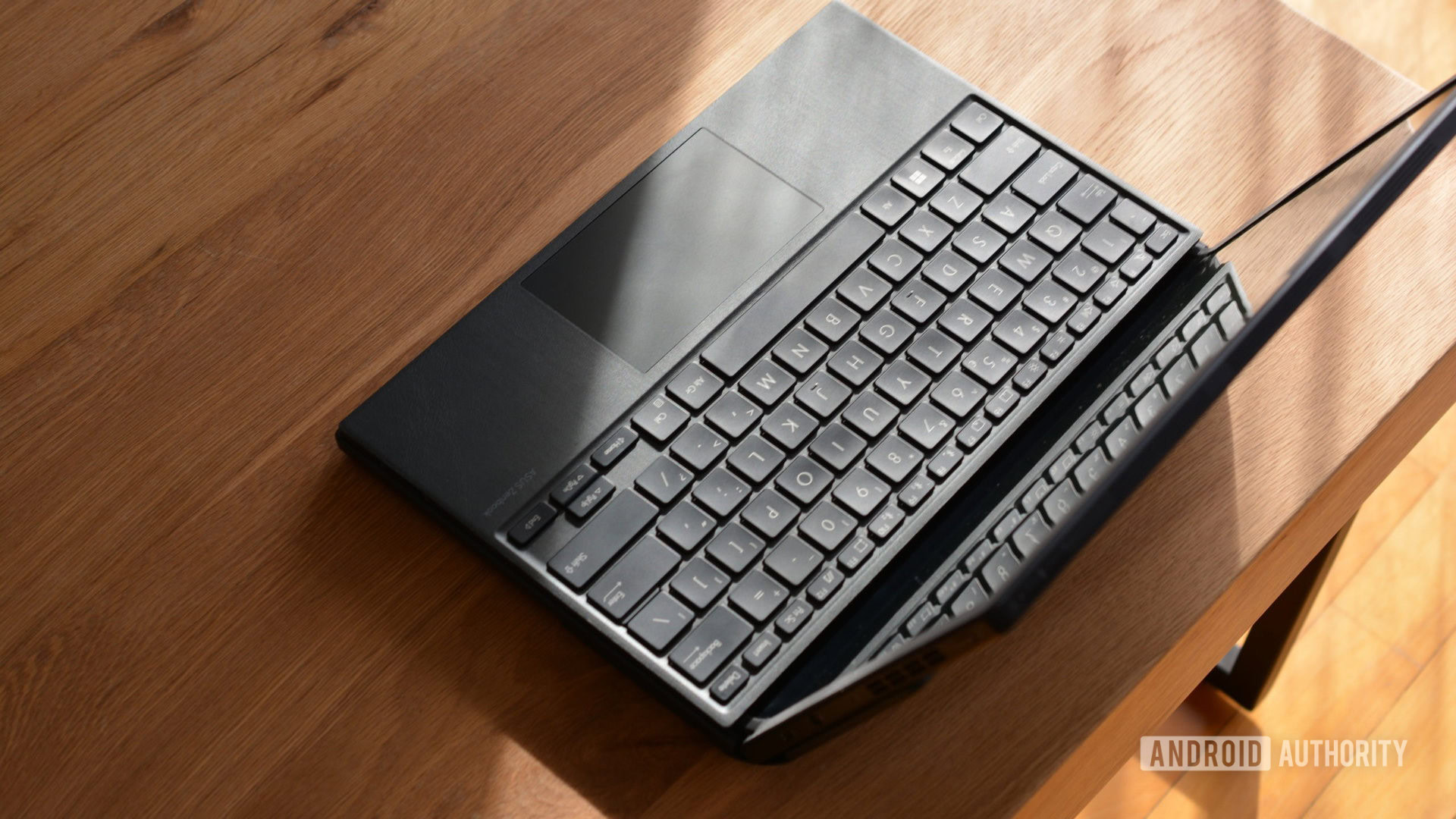
Between the roomy 4:3 format, the gorgeous OLED colors, and the touchscreen, using the Zenbook 17 Fold at your desk is a pleasure. But you don’t have to be tied to your desk — you can set up the same productivity-enhancing big screen on your kitchen table or at your favorite cafe. And that’s the key value proposition of the ASUS Zenbook 17 Fold. It’s both portable and compact and expansive when you need it to be.
I wouldn’t go as far as to call the Zenbook 17 Fold a replacement for a dedicated monitor, especially if you own a big ultrawide or 4K monitor. And ASUS’s implementation of the foldable screen idea is not without problems. You can tell ASUS was more concerned with shipping an innovative product rather than polishing it to perfection. The bezels are anachronistically thick, the edges are too blunt and plasticky, and the kickstand offers limited adjustment options. Plus, it takes a while to figure out how to easily pop it open, especially when the keyboard attachment is tucked in.
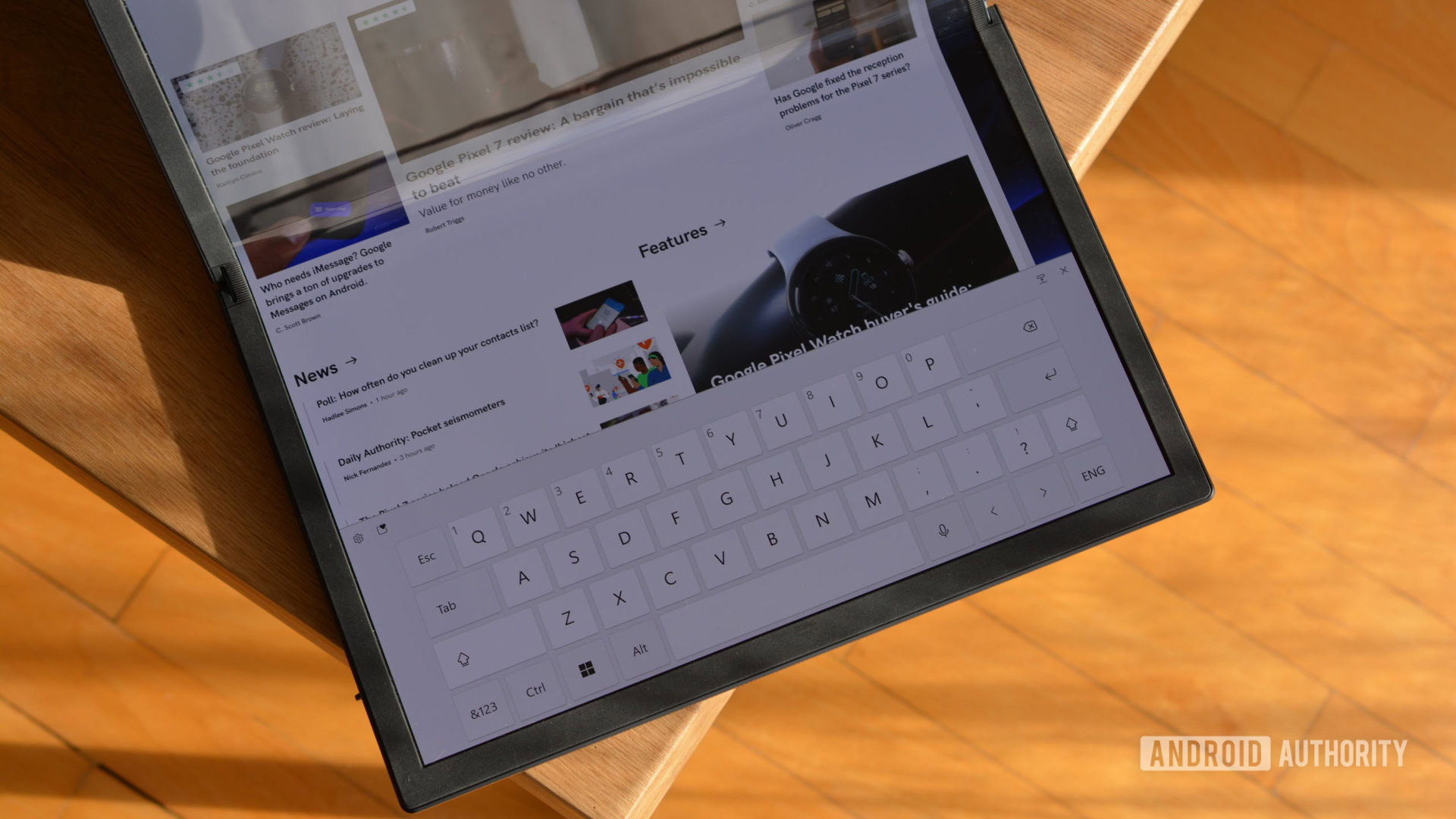
One thing that’s not a problem is the screen crease, made infamous by foldable phones. The Zenbook 17 Fold doesn’t have one. Instead, there’s a slight indentation running down the middle of the display, which causes a small shift in colors and luminosity when viewed at certain angles. I was initially skeptical, but after using it for a few hours, I realized this wasn’t an issue. I simply stopped seeing it after a while.
I am sold! How do I get one?

Okay, here’s the problem. As much as I think you’d enjoy it, I can’t recommend that you buy the ASUS Zenbook 17 Fold. Yes, it’s innovative and versatile but also unpolished and extremely expensive. It’s the textbook definition of a first-generation product that only dedicated early adopters should even consider, let alone buy.
The Zenbook 17 Fold is the textbook definition of a first-generation product. Only dedicated early adopters should even consider it, let alone buy.
The ASUS Zenbook 17 Fold costs $3,500 in the US and a tear-inducing €4,000 in European markets. That’s very pricey, even when you account for the cost of the foldable screen. It’s also $1,000 more than its direct competitor, the Lenovo X1 Fold (2022). For that price, you could easily kit yourself out with a high-end laptop, monitor, and tablet, with some change to spare.
Even if money means nothing to you, you should know about some other issues with the ASUS Zenbook 17 Fold. It suffers from mundane problems like unstable Bluetooth connectivity, middling performance (this is no gaming machine), and bloatware (McAfee pop-ups feel downright insulting on a $3,500 PC).
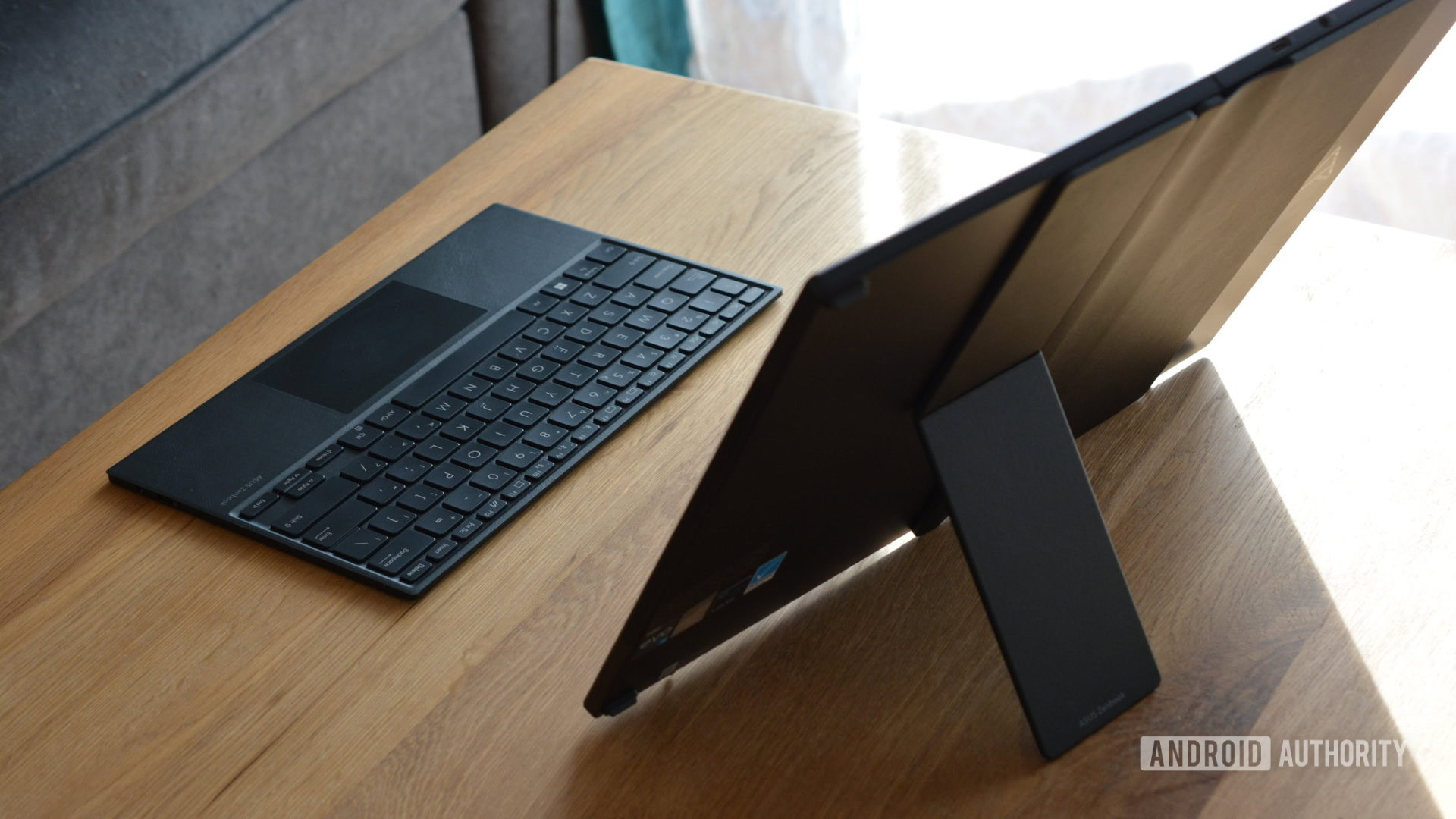
ASUS also struggled to solve all the unique problems created by the foldable design. Bafflingly, because the webcam is on the side, the image is sideways in Zoom calls. That oversight shouldn’t have made it to a shipping product. Occasionally, the laptop forgets what mode it’s in, causing the interface to spill over the entire screen even when the keyboard is on top of it. Speaking of the keyboard, it’s pretty good for the most part, with decent key travel and ergonomics, despite its slimness. It’s not backlit and not something I’d love to use every day, but it’s good enough when you’re on the go.
A solid, if not fantastic, PC, that’s completely overshadowed by its main selling point — that beautiful folding screen.
On the flip side, the battery is solid at ~7h of use, despite the acres of screen it has to power. The sound is surprisingly loud and pleasant, the build quality is satisfactory, and Windows 11 gracefully adapts to the transition between screen modes (except for the bugs I mentioned).
In short, the ASUS Zenbook 17 Fold is a solid, if not fantastic, PC, that’s completely overshadowed by its main selling point — that beautiful folding screen.
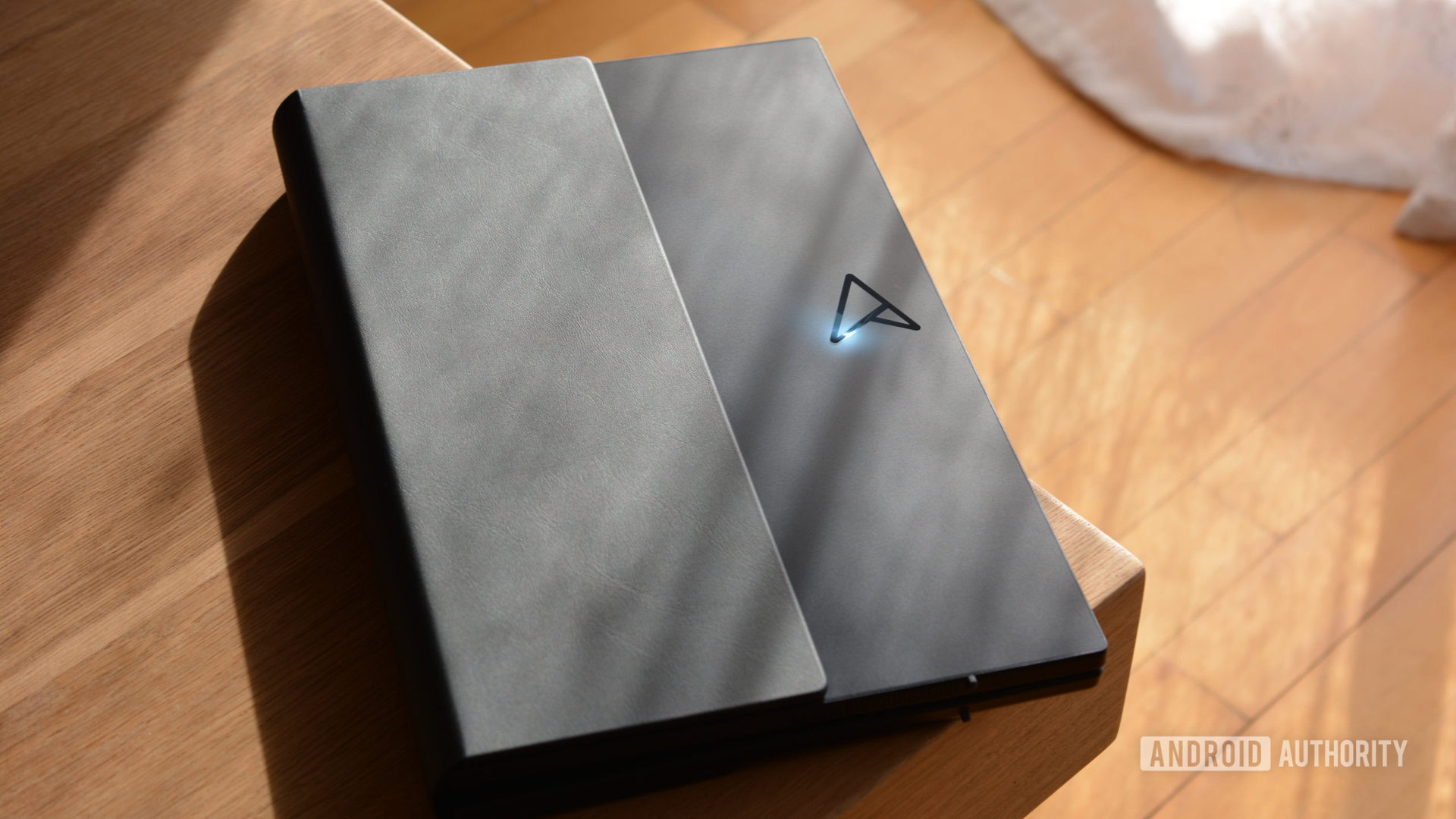
So what’s the point, then?
The point of the ASUS Zenbook 17 Fold is to prove that folding screens on laptops are not only technically feasible but also functional, practical, and fun to use. If that was the mission ASUS set out to accomplish, it’s already a success, even if the price rules out the possibility of it becoming a commercial hit.
I already argued that foldable laptops make more sense than foldable smartphones, as foldable-screen laptops offer a bigger usability/productivity boost than a phone could ever do. This impression has only been reinforced by my time using the ASUS Zenbook 17 Fold.
There are still many problems to solve to make foldable laptops a viable product category, but I don’t see any deal-breakers. I’m willing to bet other manufacturers will jump on the bandwagon soon, and perhaps fix the early problems encountered by the ASUS Zenbook 17 Fold and Lenovo X1 Fold.
In the meantime, this desk monkey will regret having to send the review unit back to ASUS.